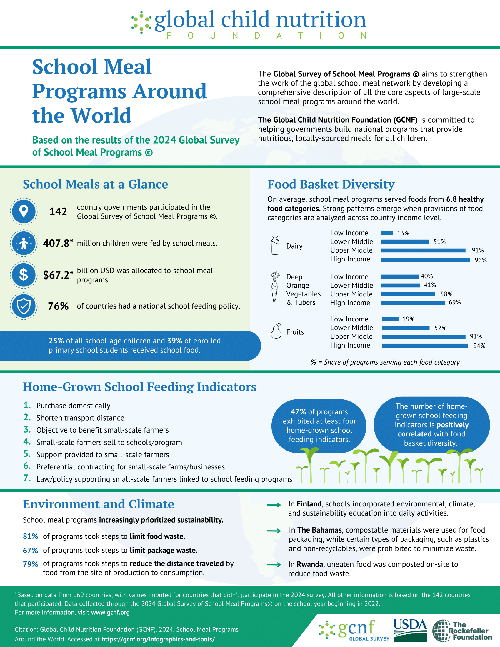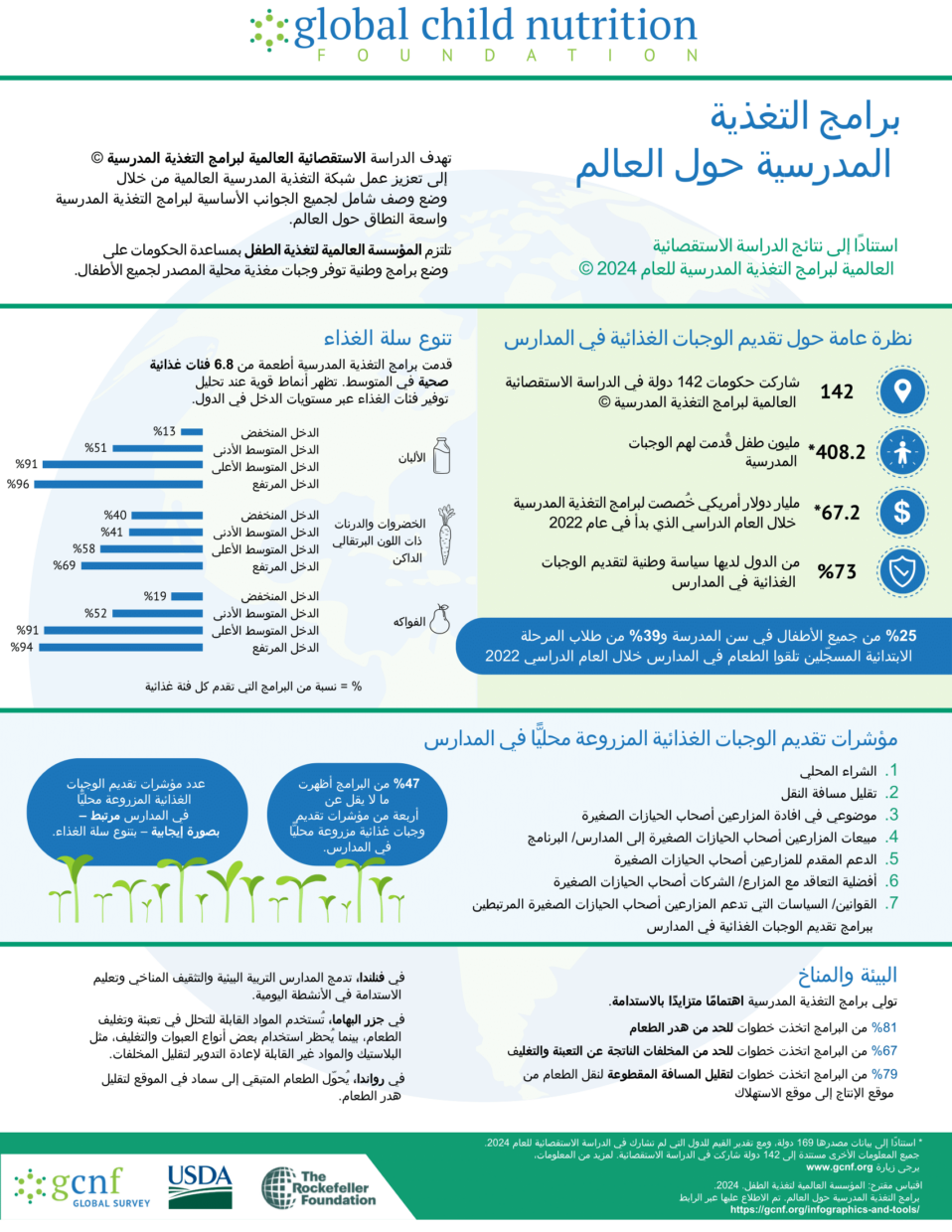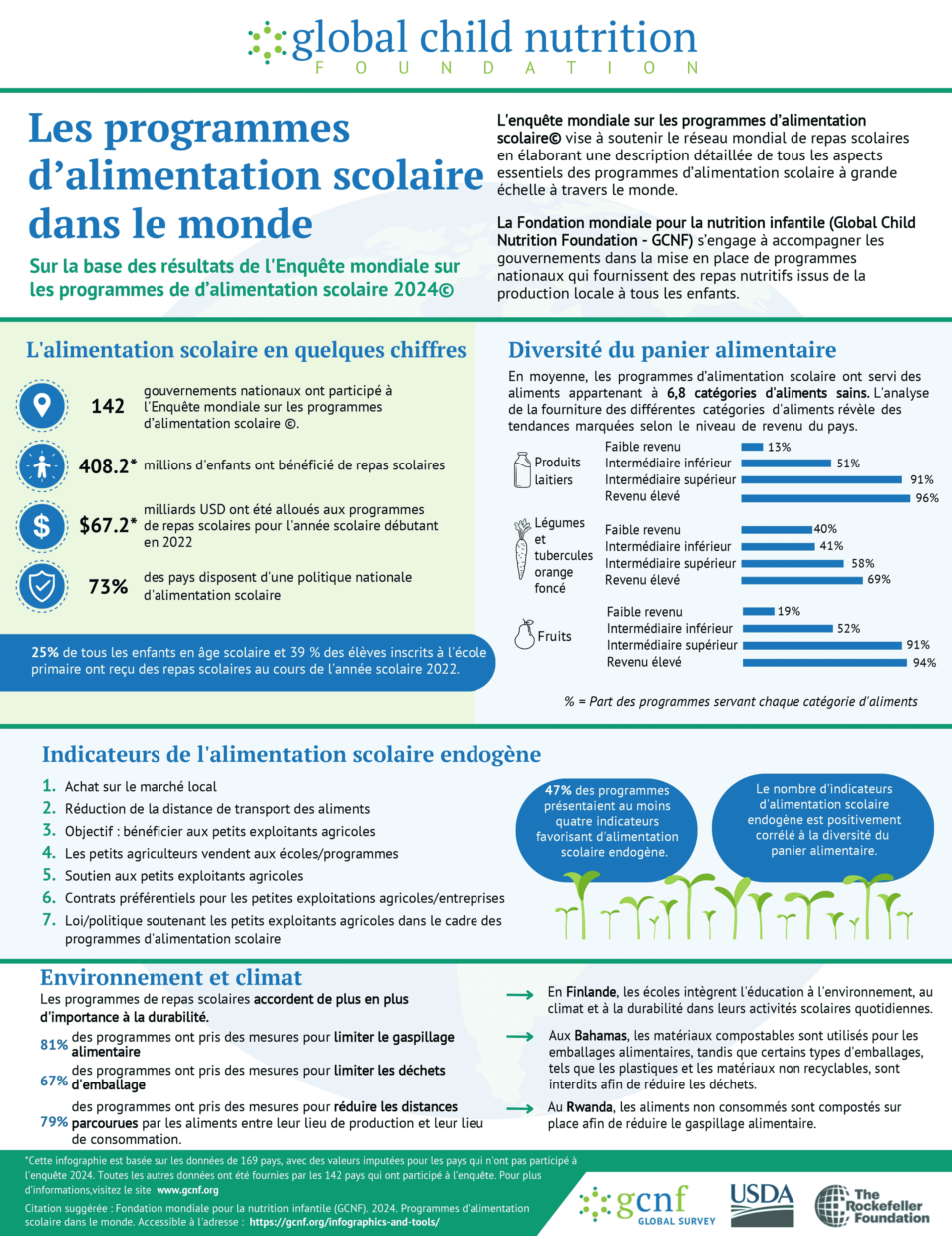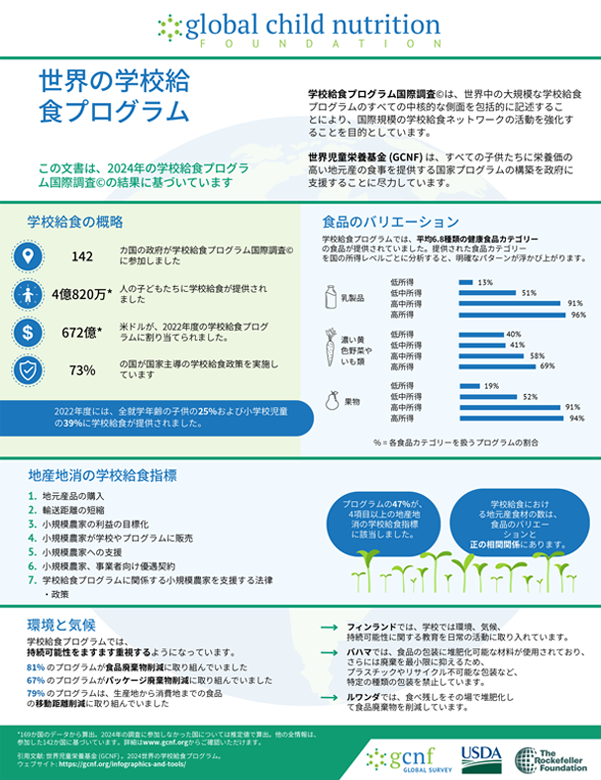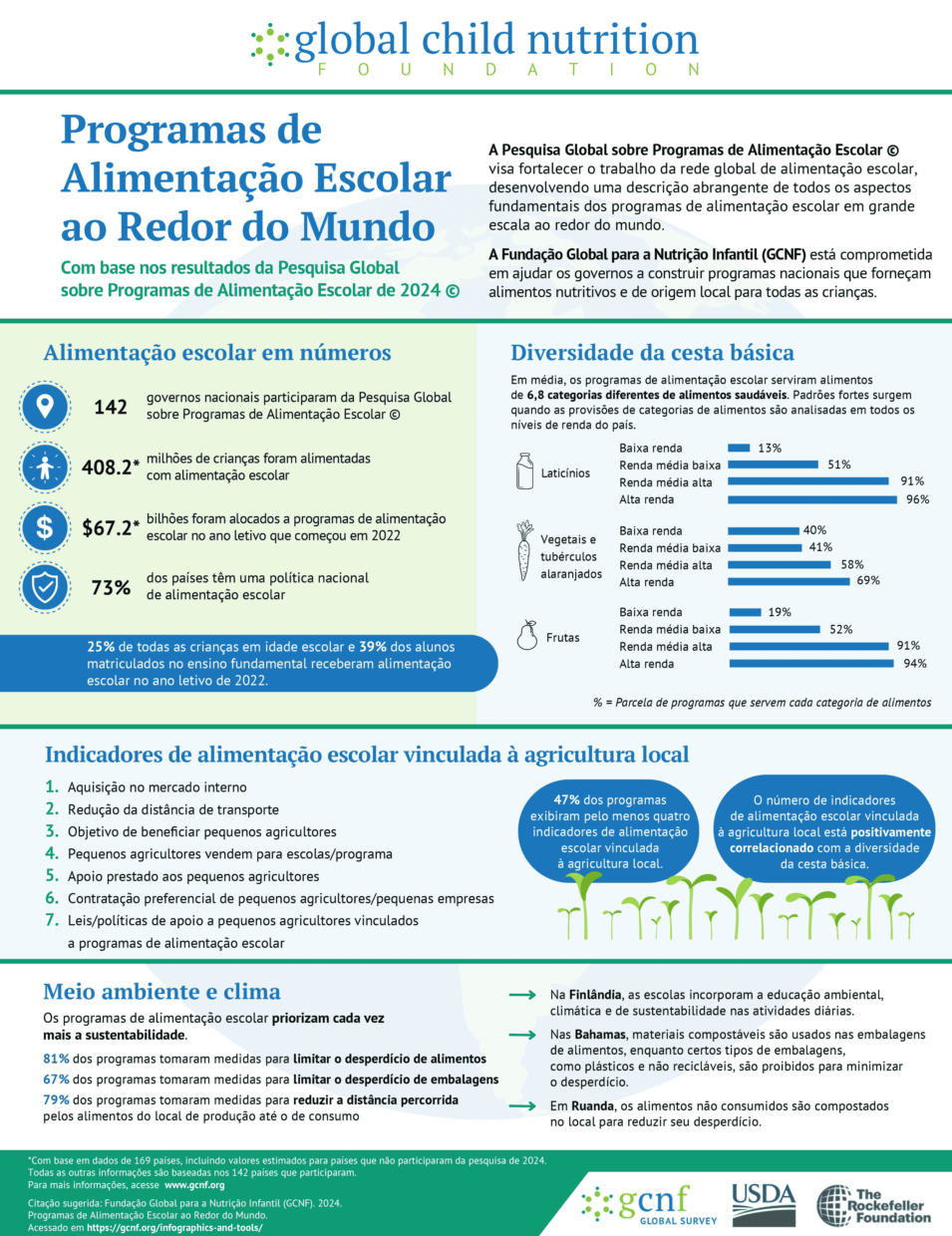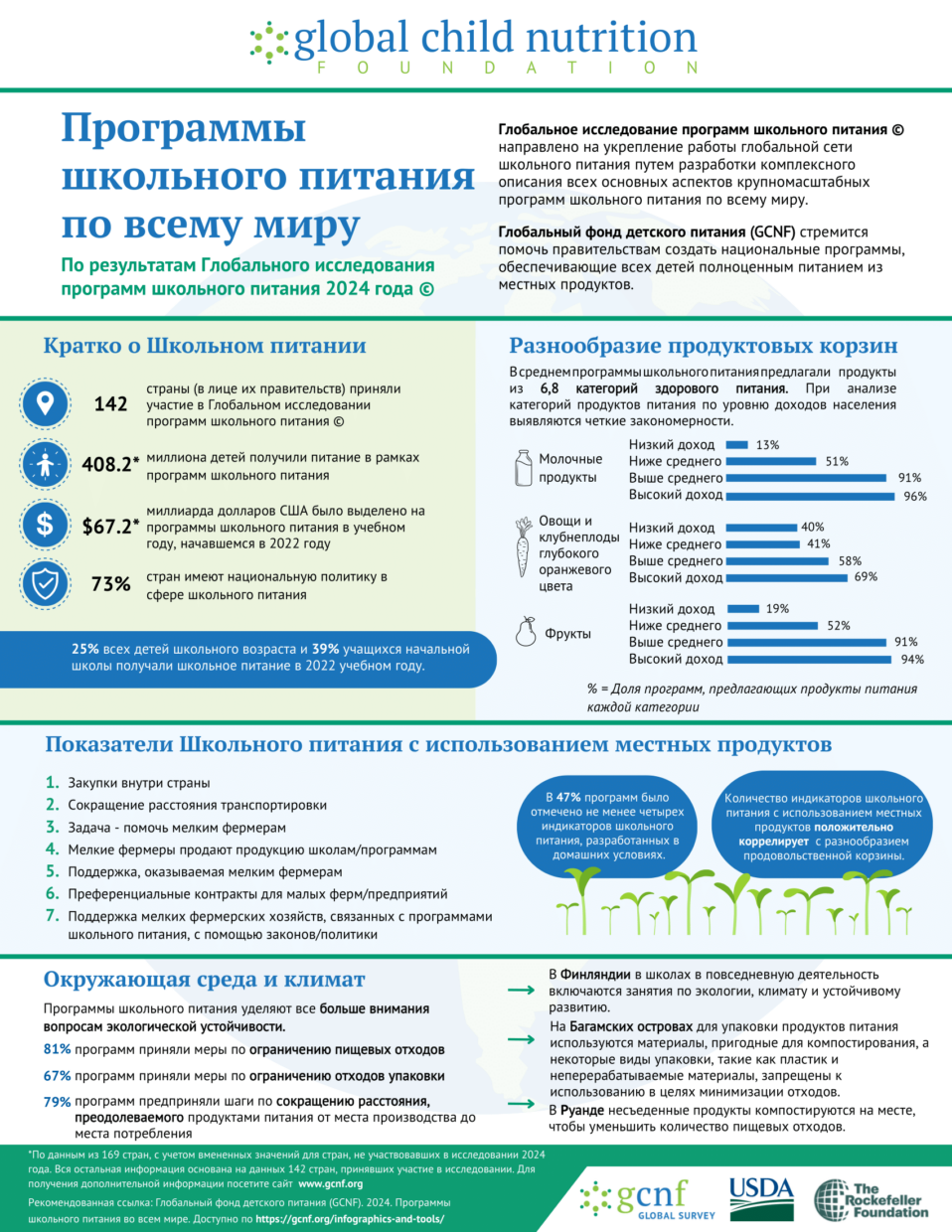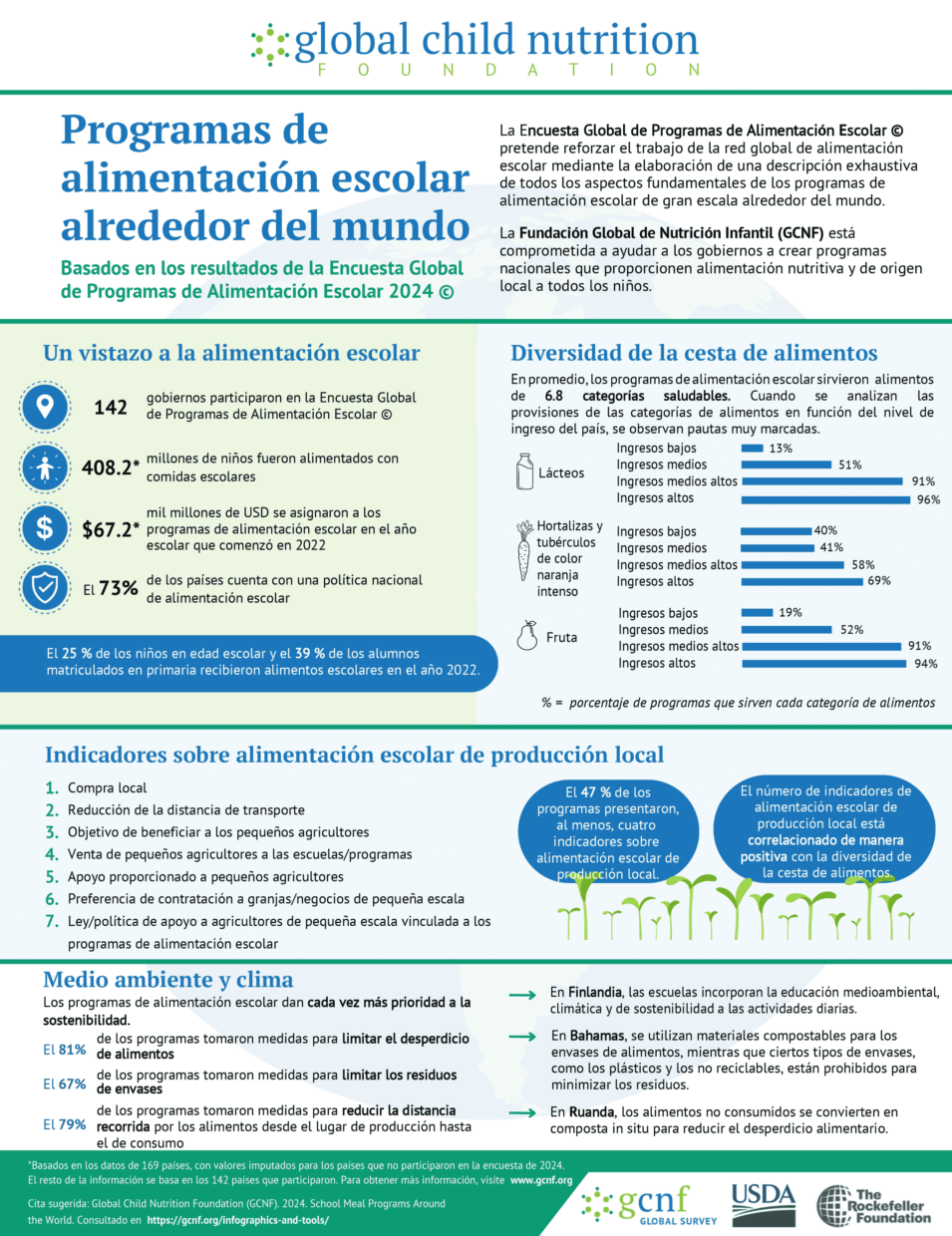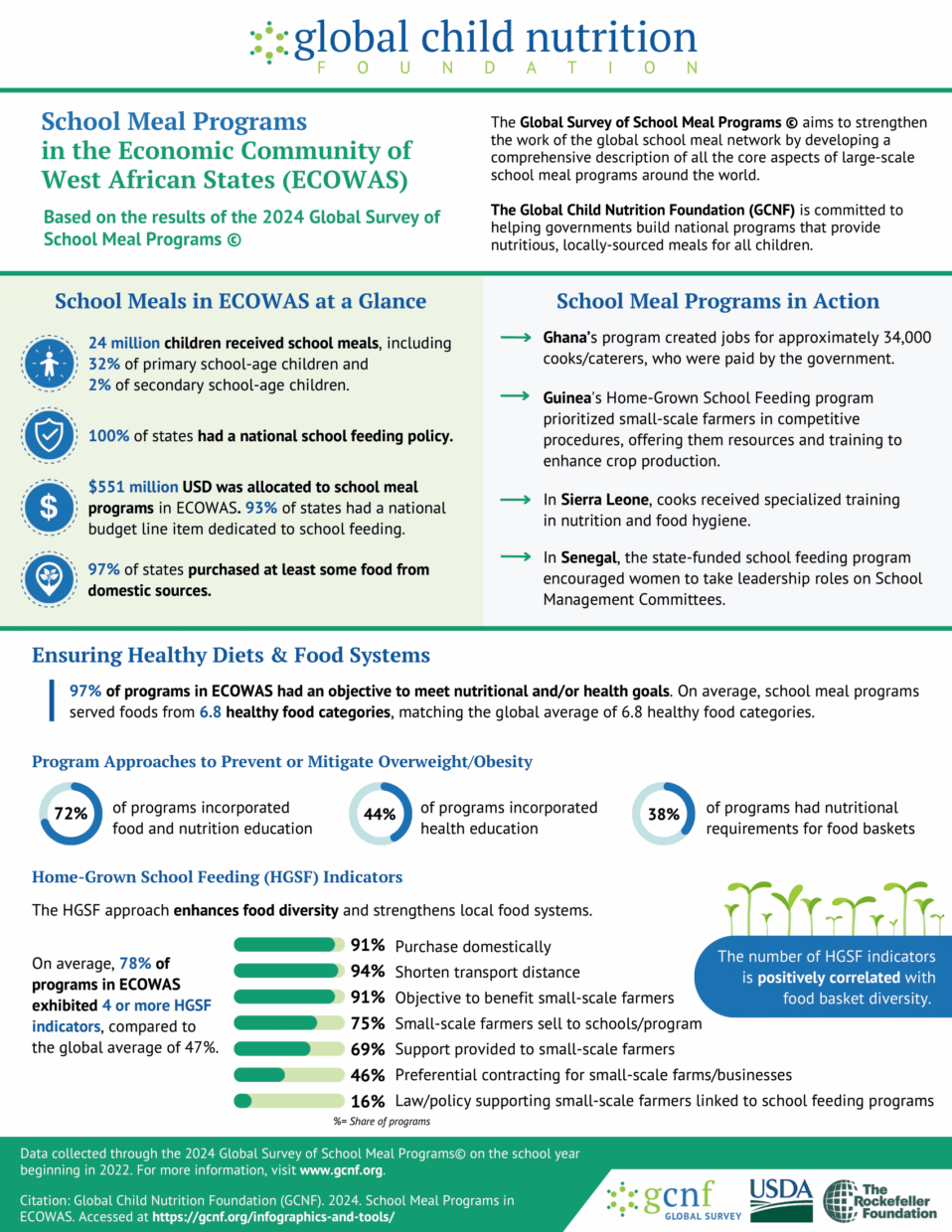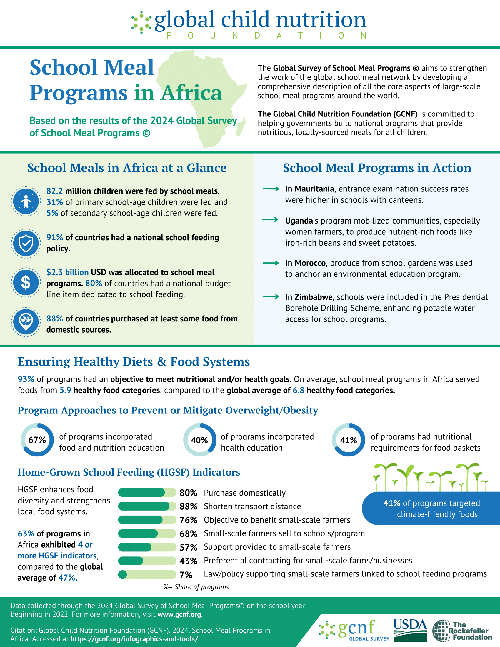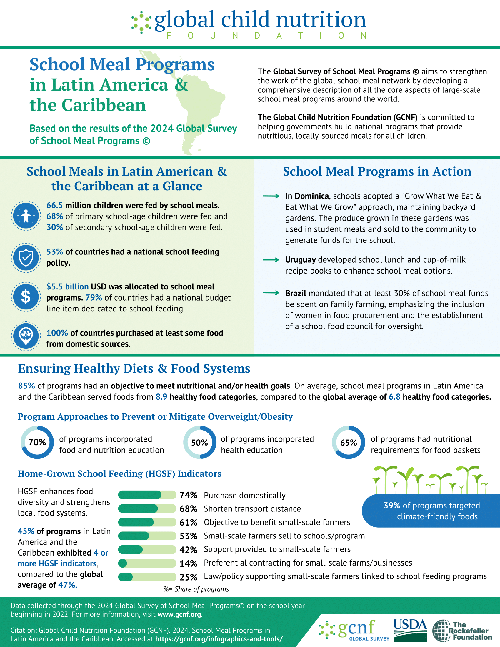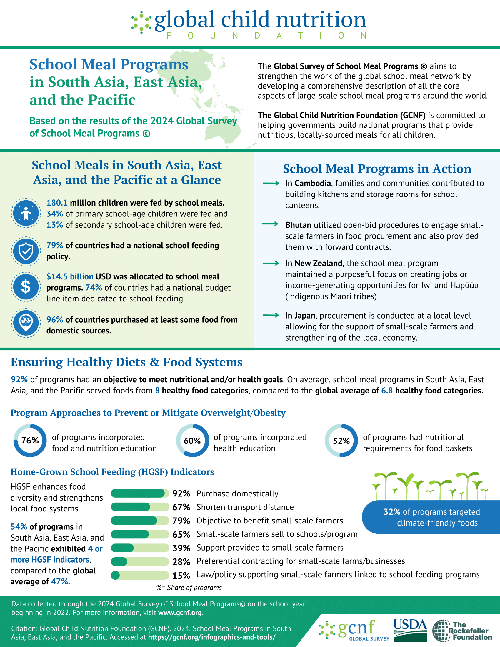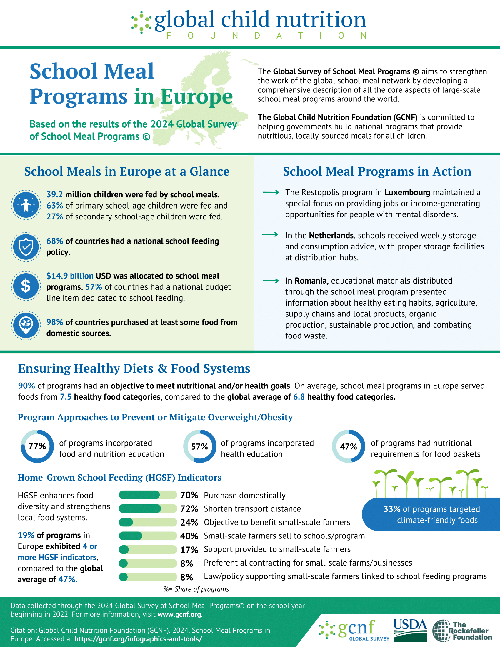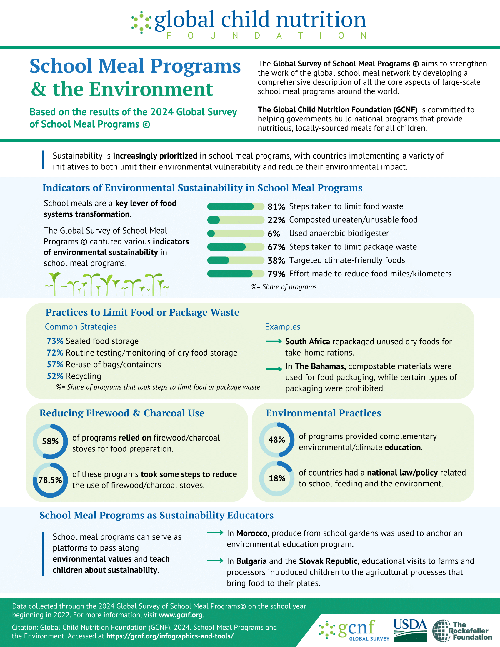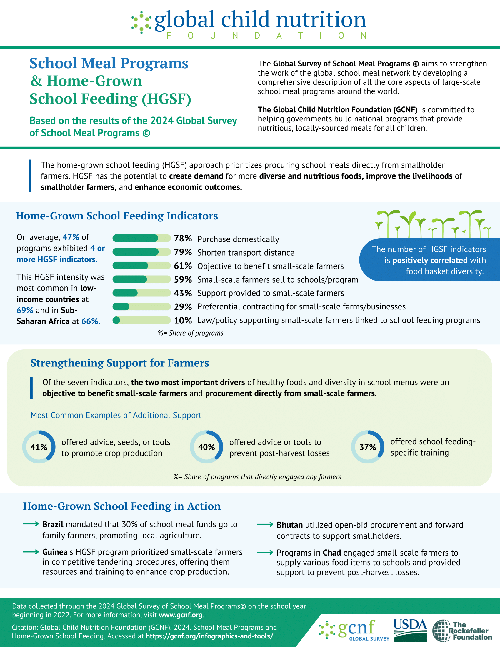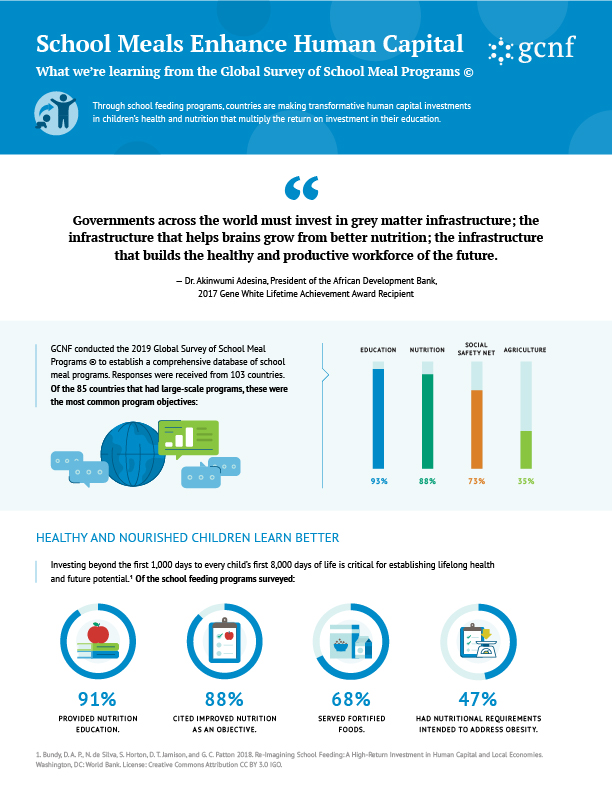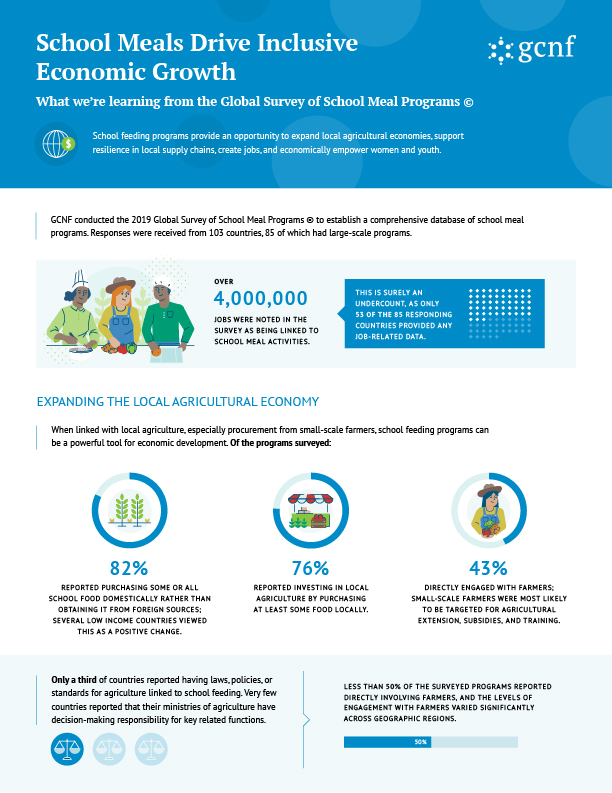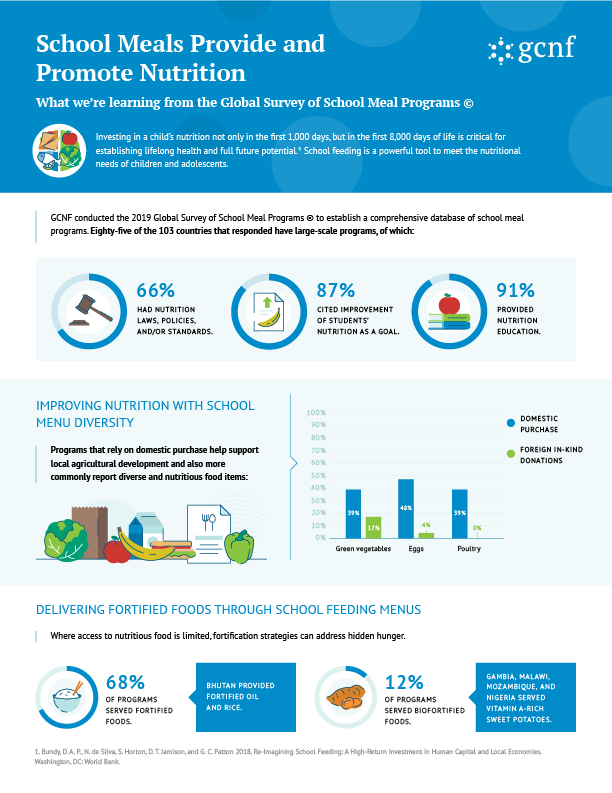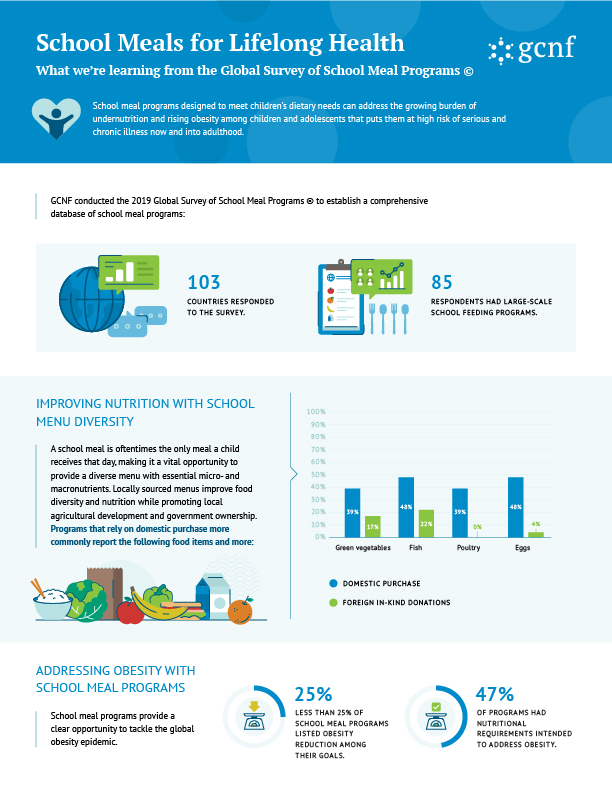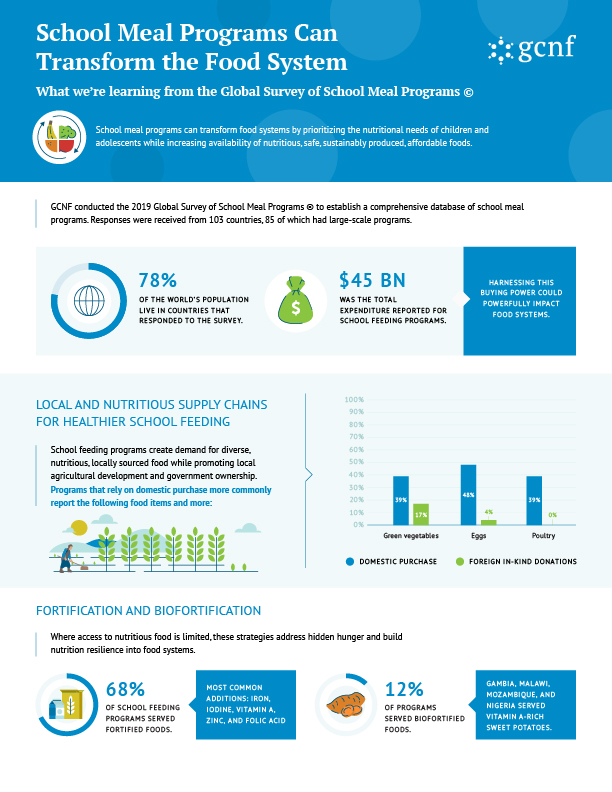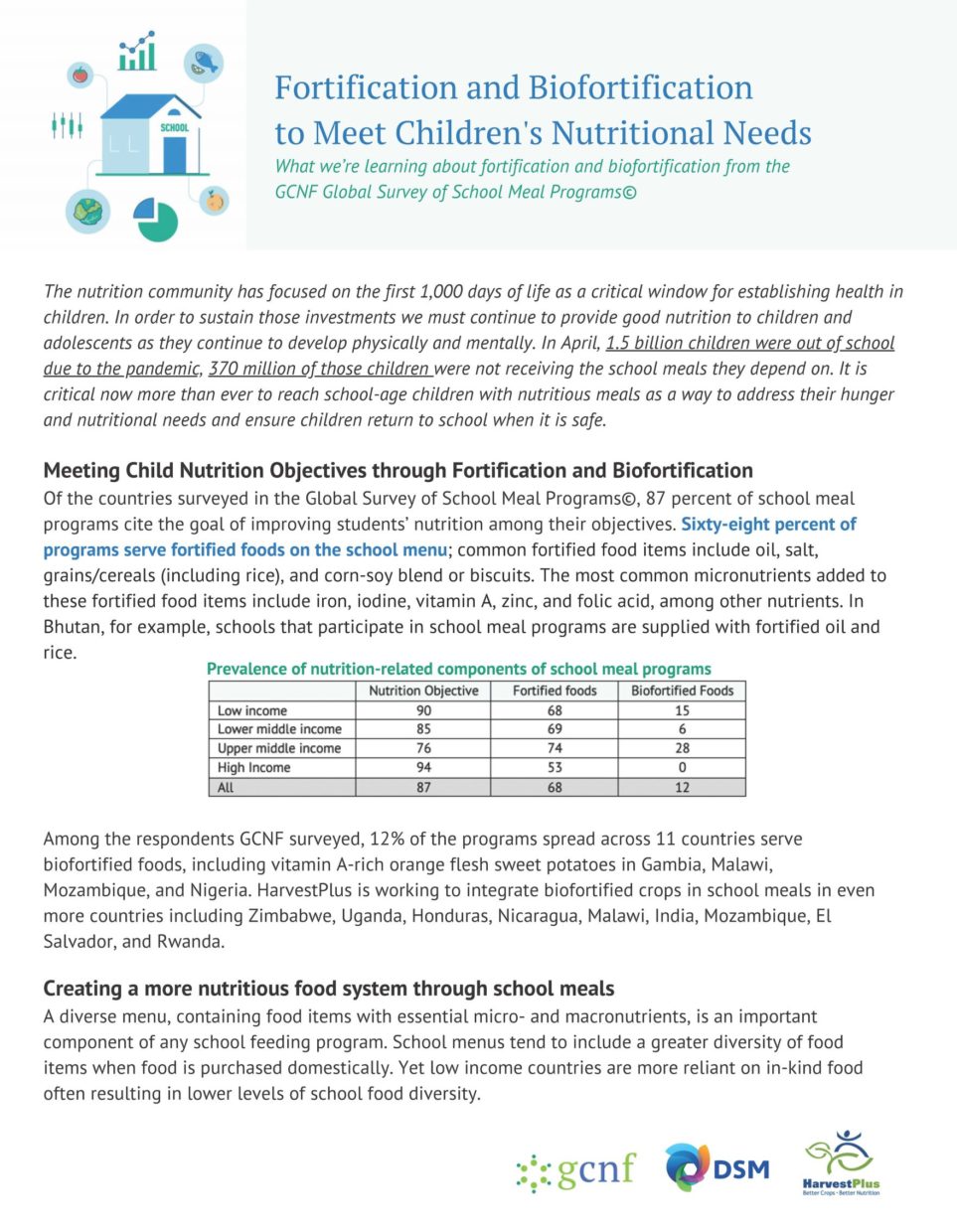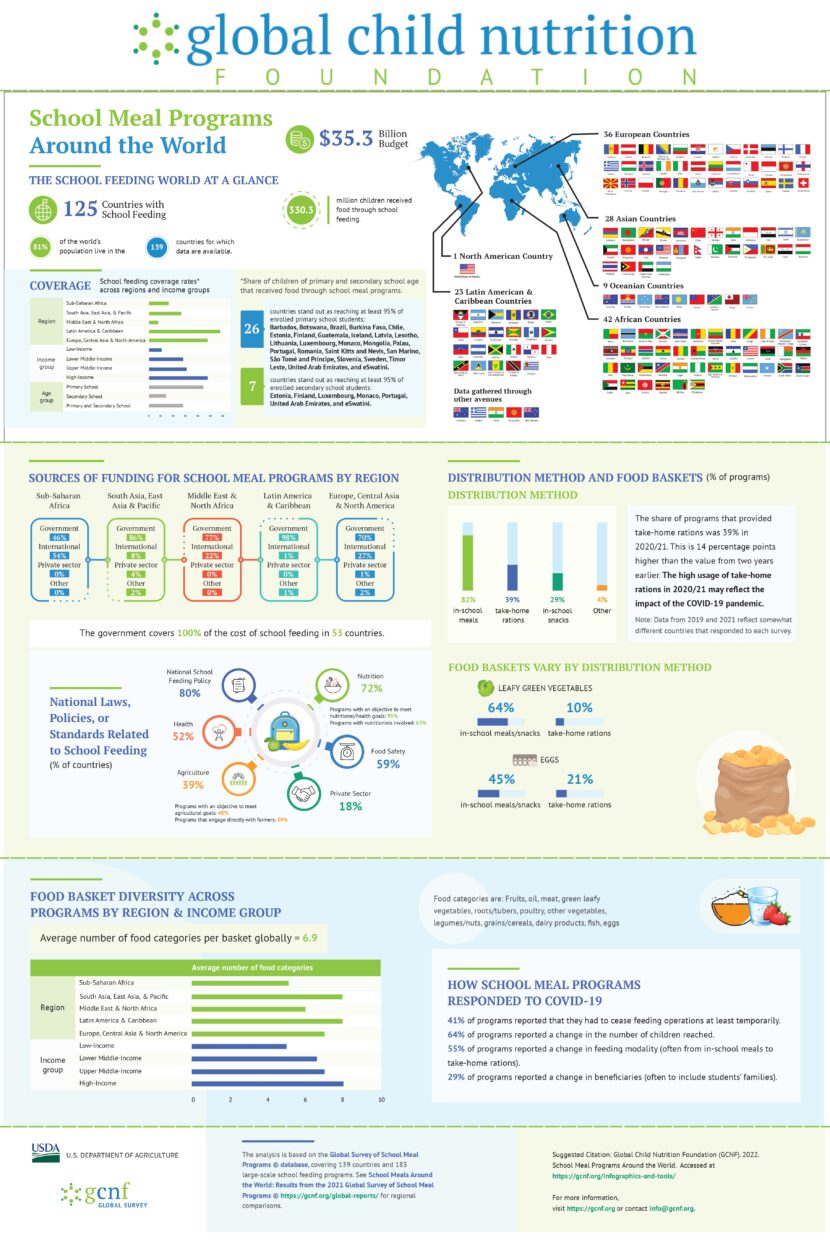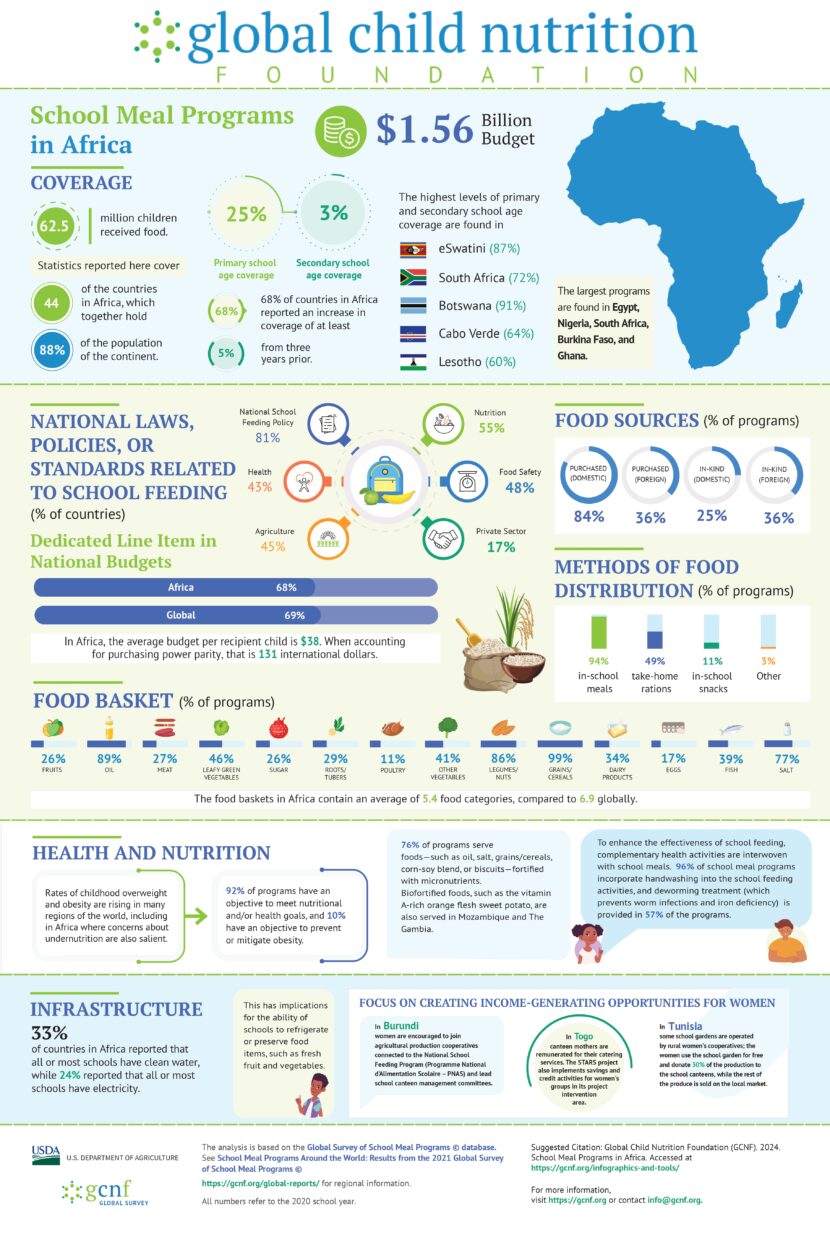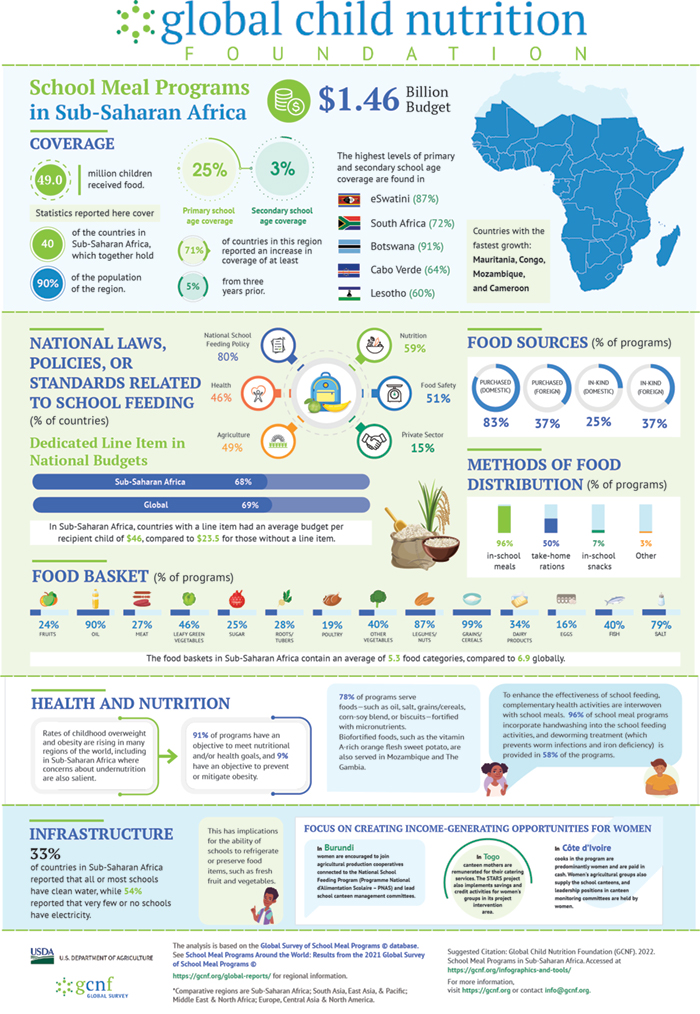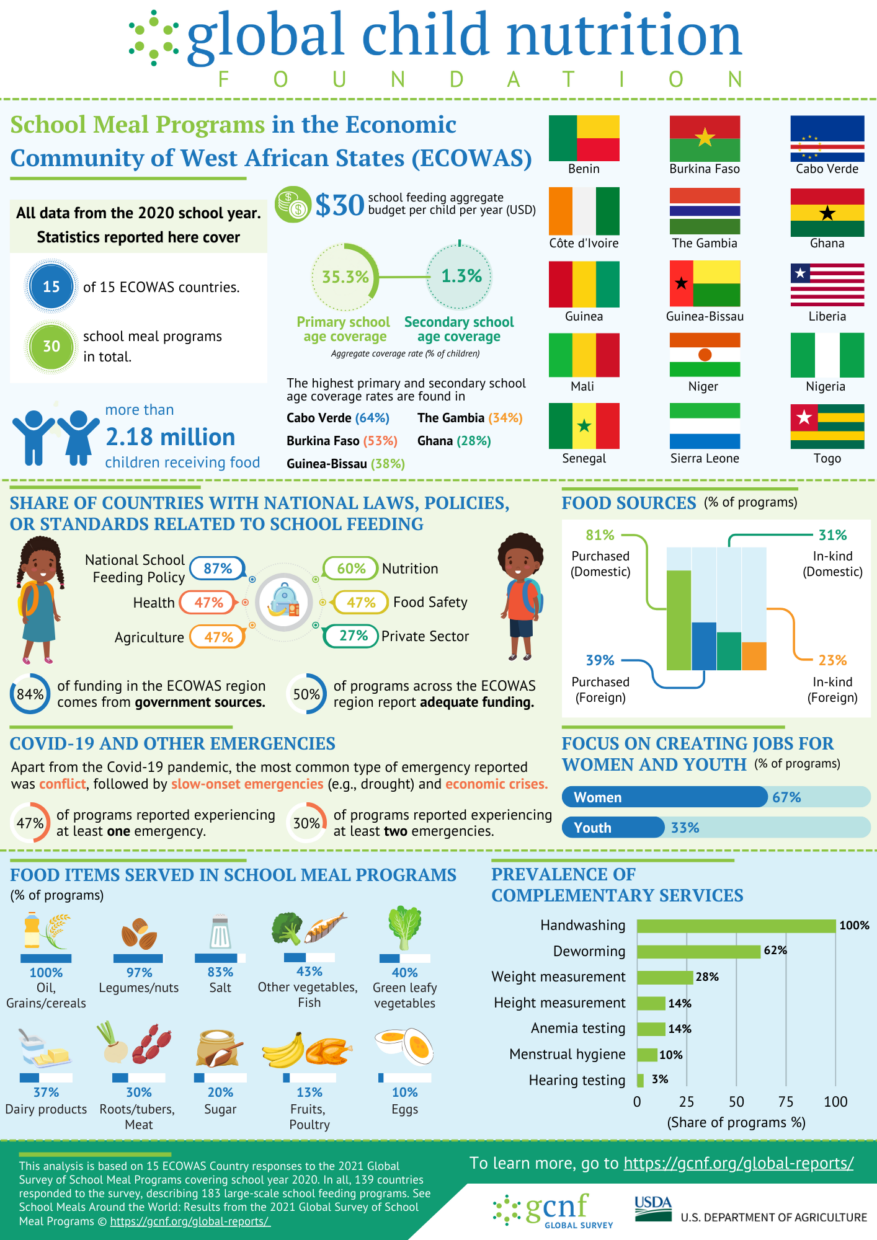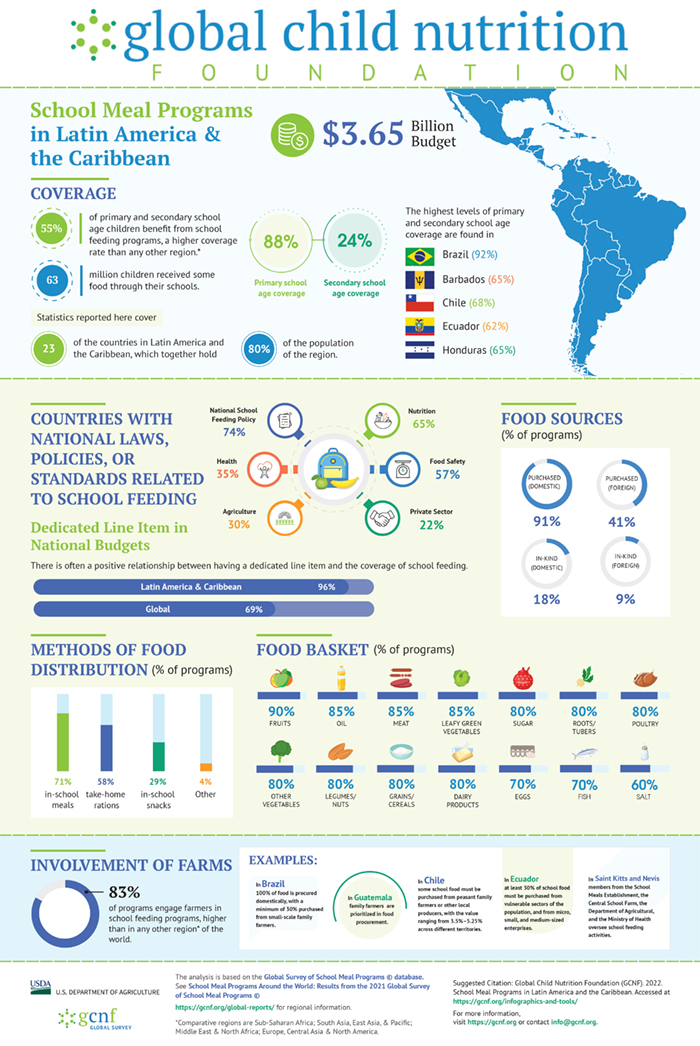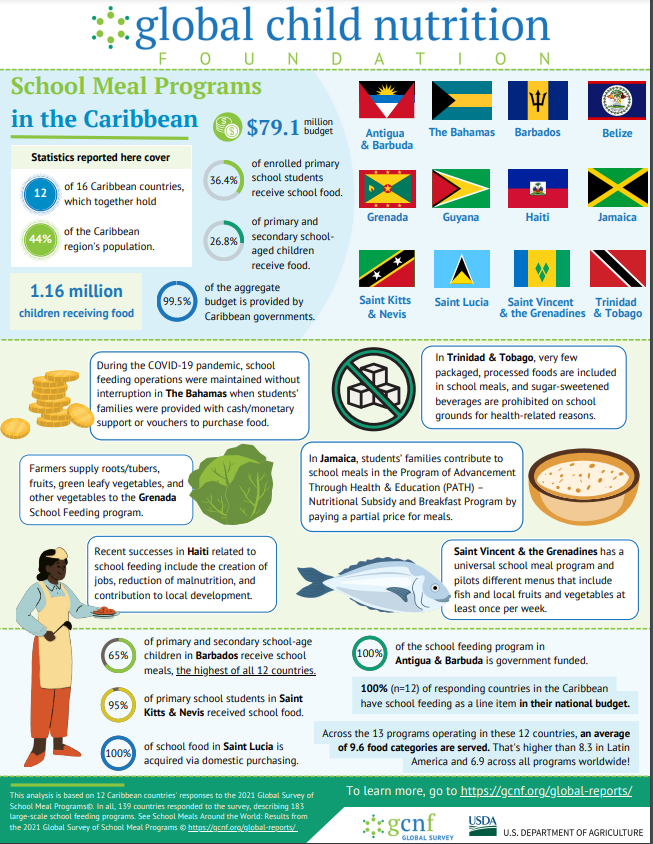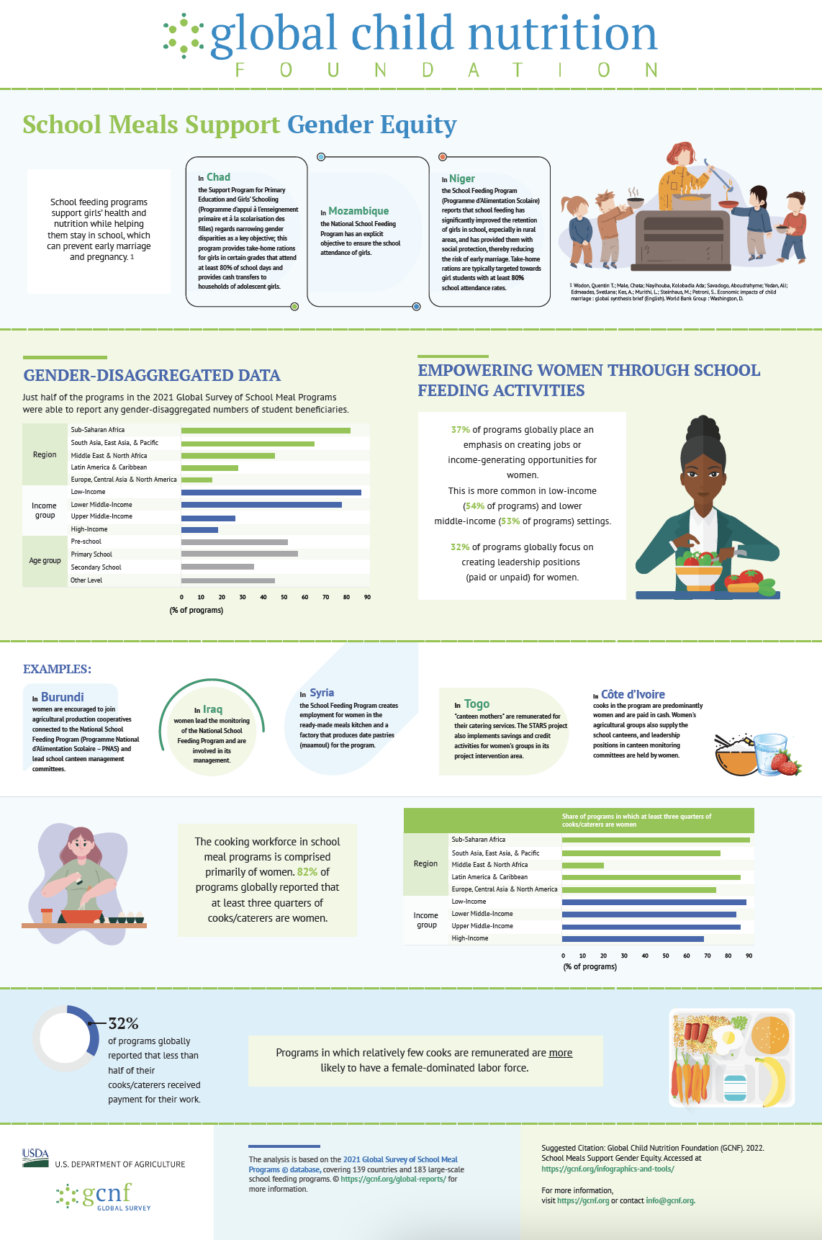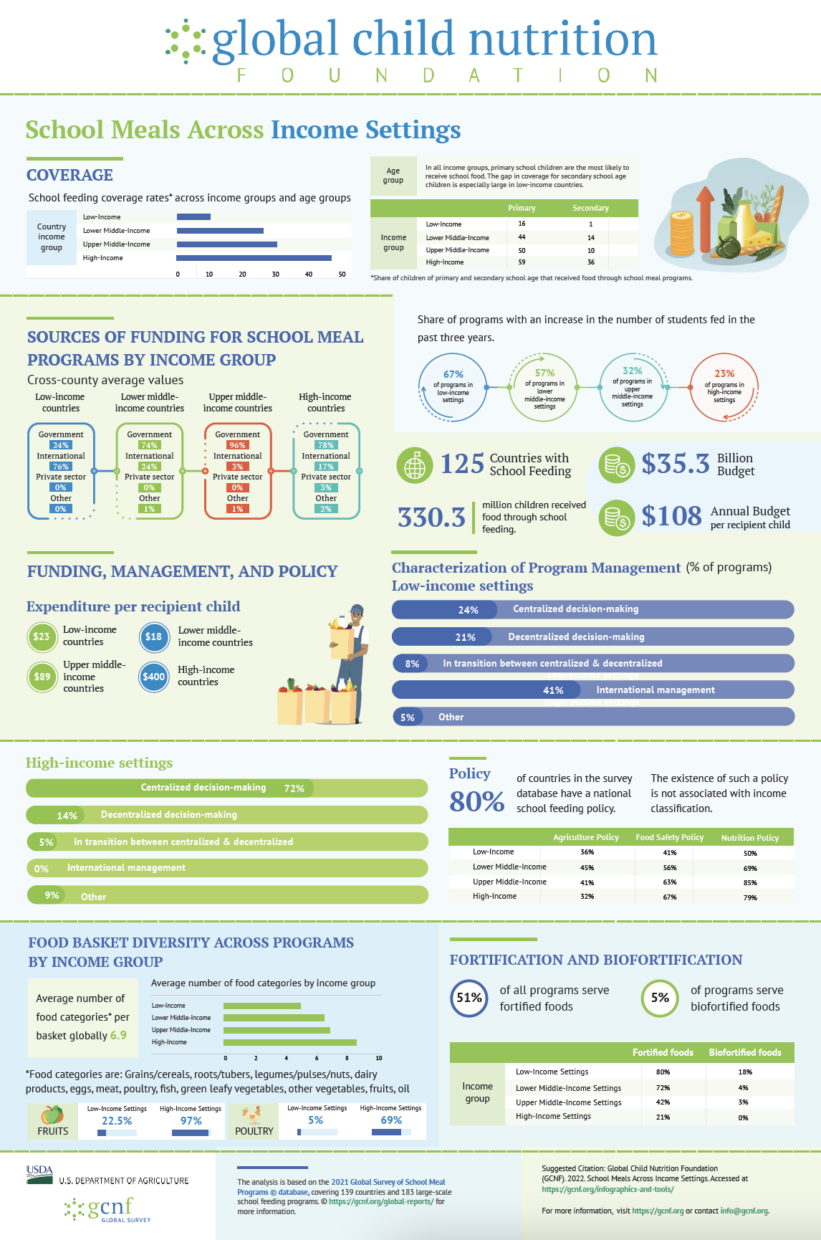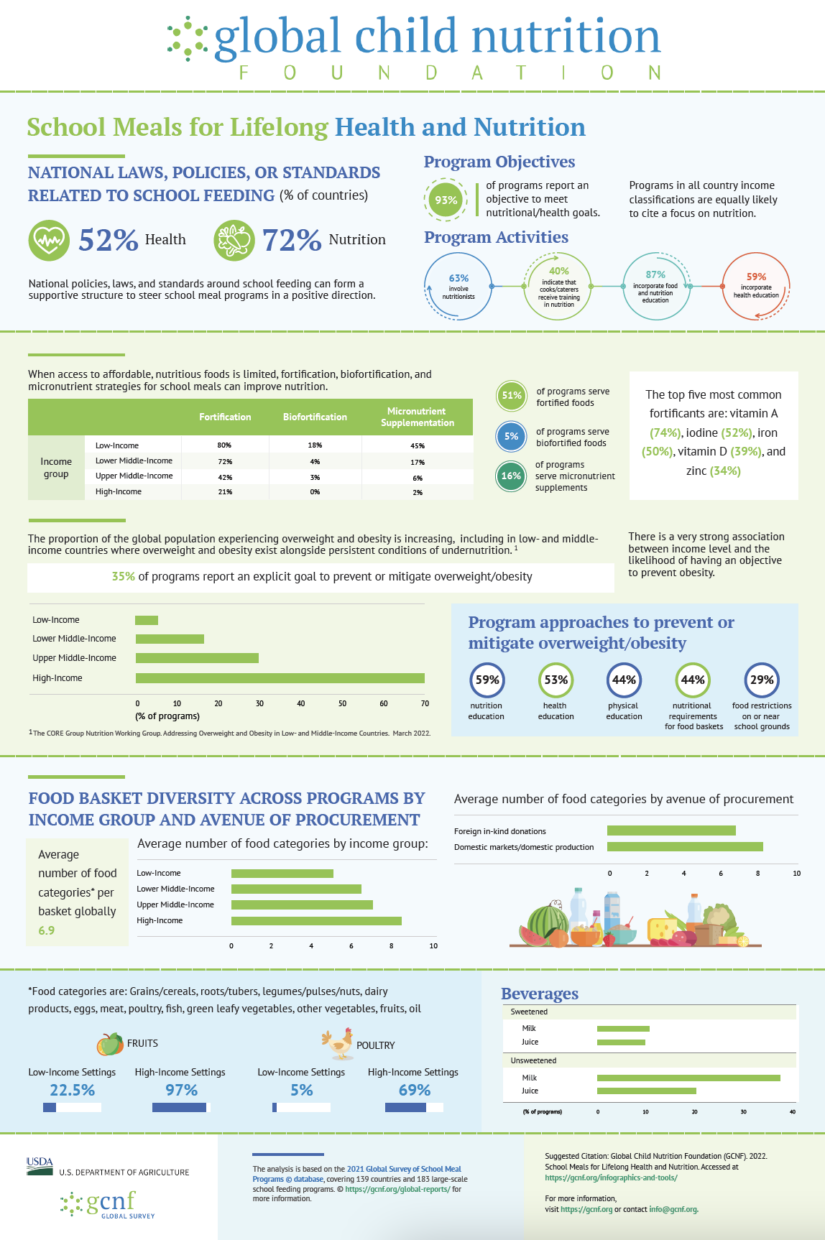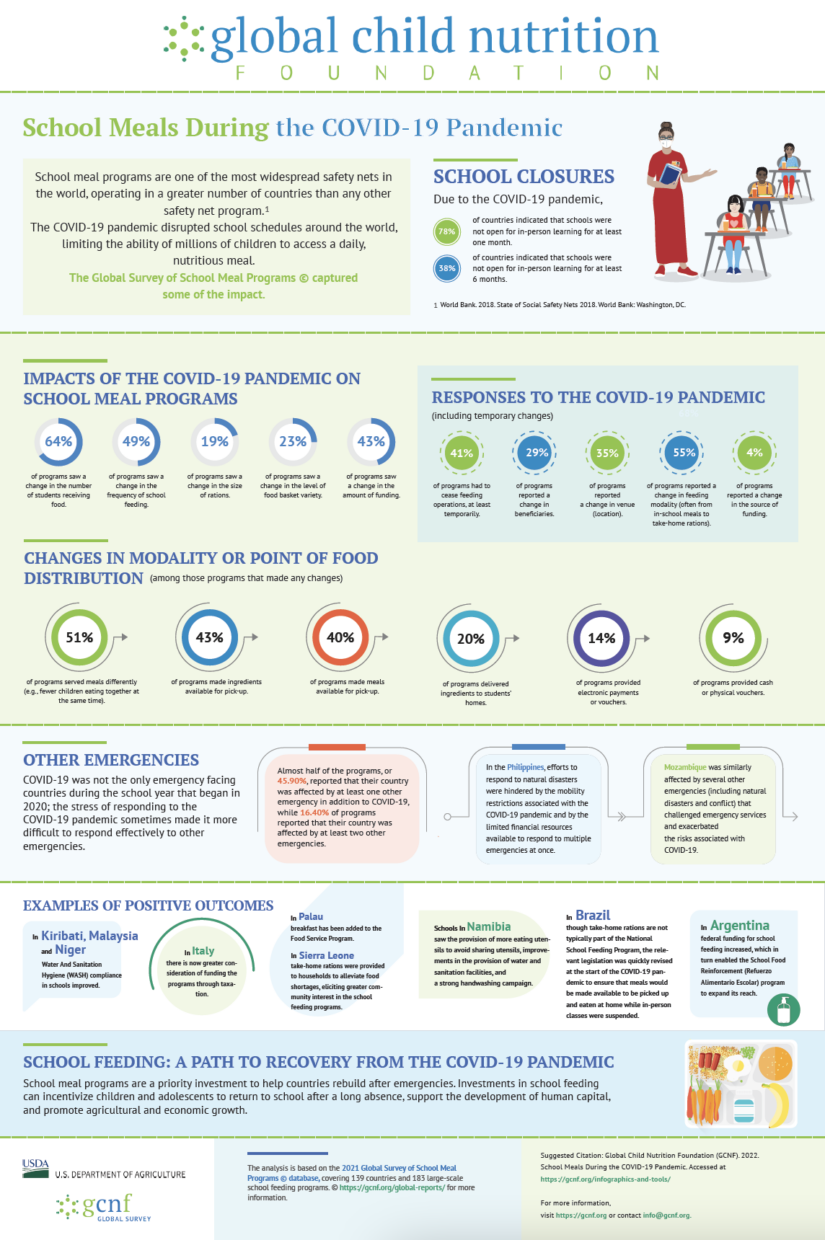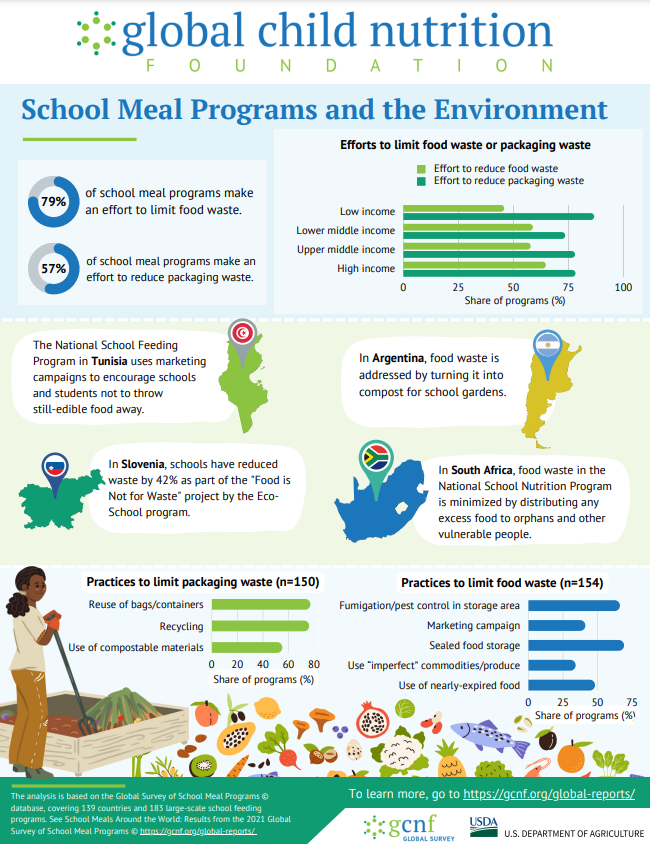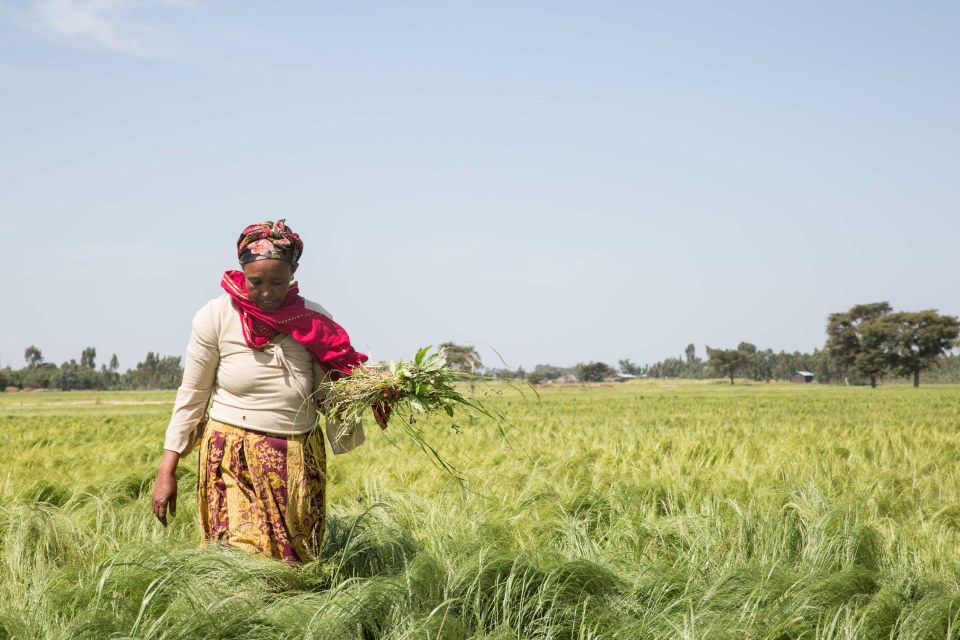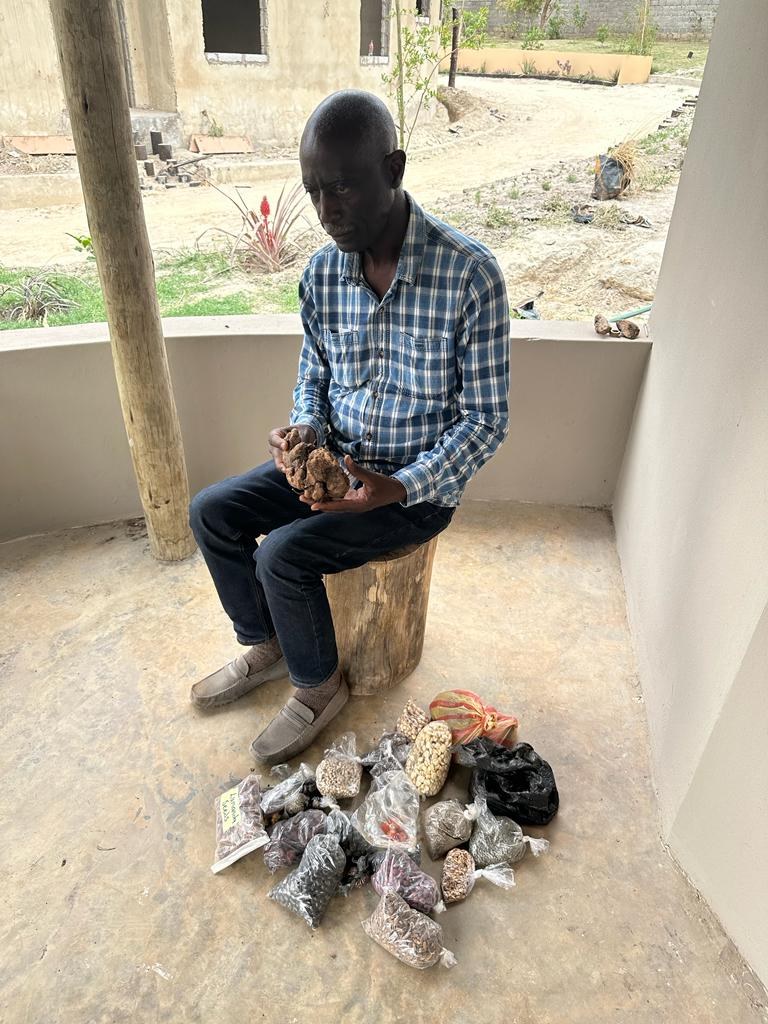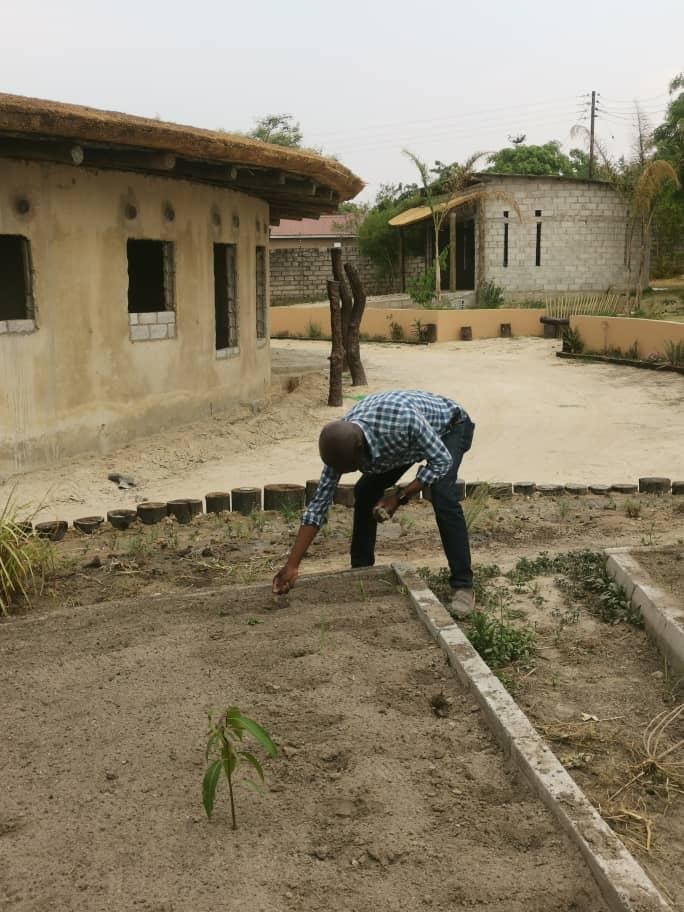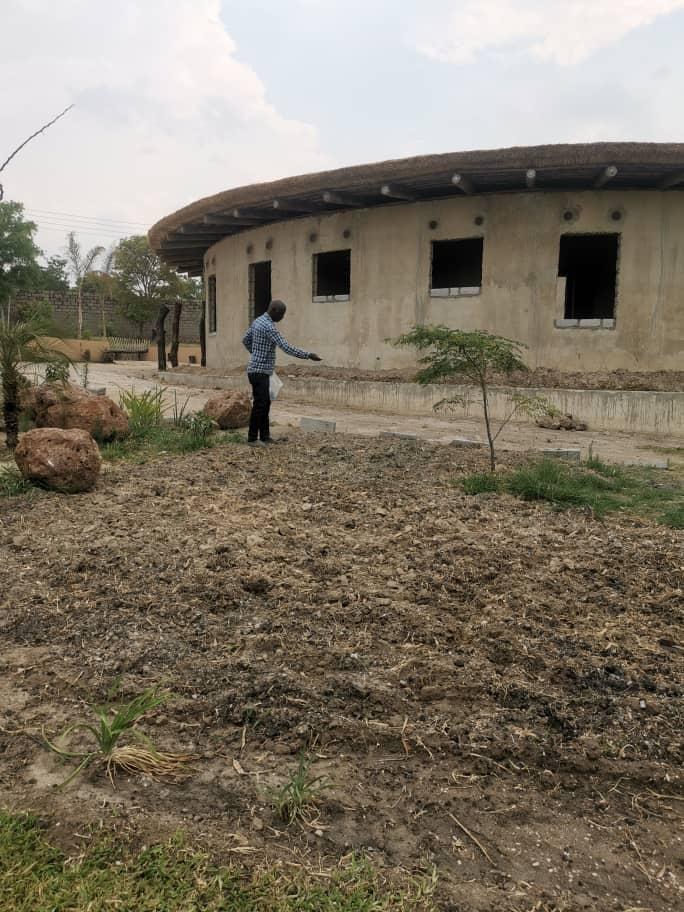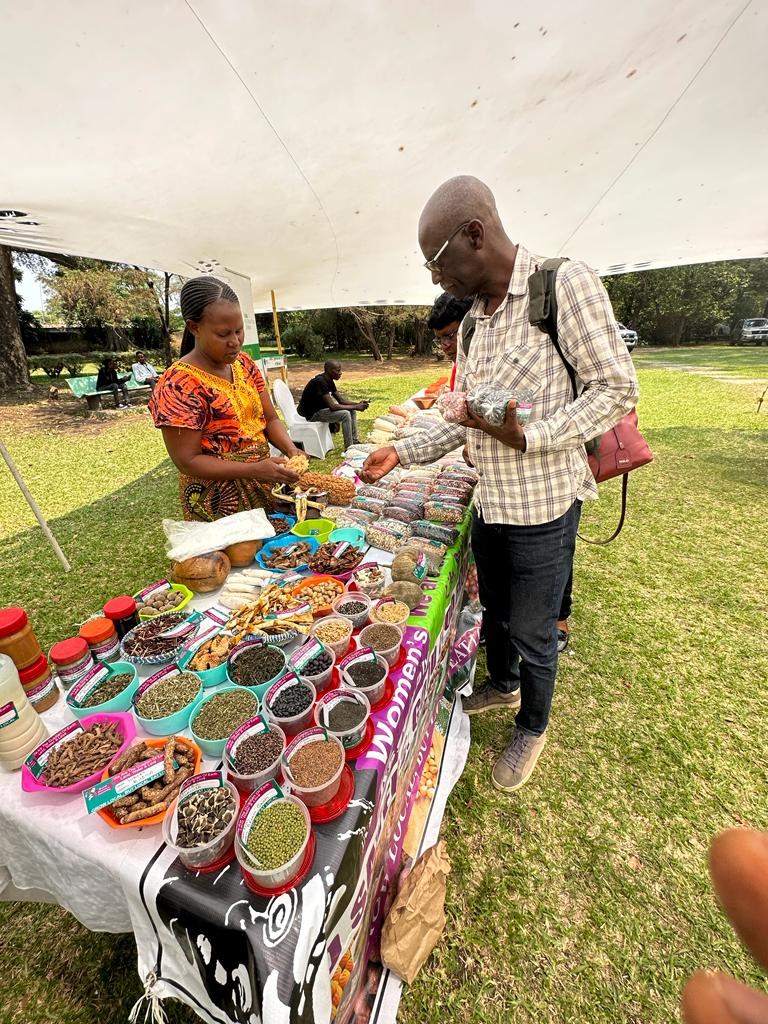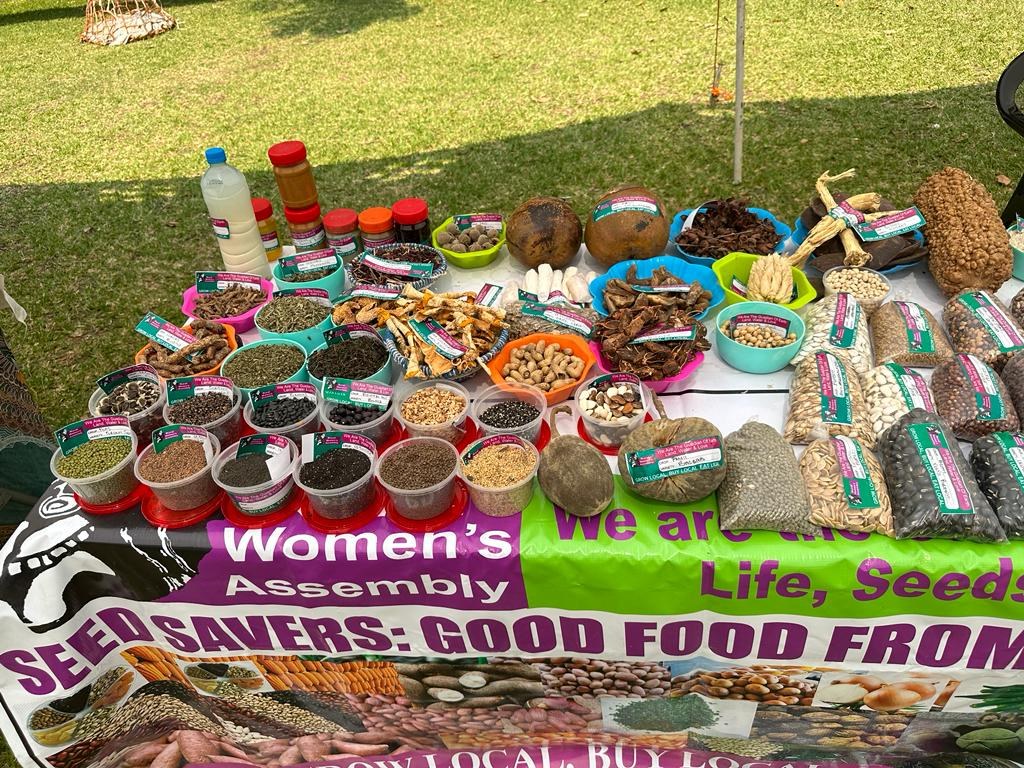
Survey Infographics

Our infographics use data from the Global Survey of School Meal Programs © resources and are designed to equip people in the global school meal network to share key findings from the report.
As a result, we hope it becomes easier to advocate for changes in policy, planning, and practice. In short, when we work together, more children around the world can learn, thrive, and be nourished.
Key Messages
School Meals Create Demand for Nutritious Foods
School meal programs aim to ensure access to healthy diets, addressing undernourishment in underprivileged populations, enhancing micronutrient sufficiency through provision of diverse foods, and shifting food preferences in a healthy direction to slow the global epidemic of child overweight/obesity.
School Meals Improve Food-Based Livelihoods
School meals have potential to support robust and equitable livelihoods across the food system. In particular, the use of locally produced foods can translate into income generating opportunities for local farmers who benefit from having a reliable market for their produce. These programs also influence food system actors at other nodes of the food supply chain by giving business to wholesalers, transporters, and processors. And they directly employ a large labor force of school cooks/caterers, food handlers, and others.
School Meals Emphasize Climate-Smart Foods
As school meal programs procure food on a large aggregate scale and have scope to set their own procurement standards, they have immense potential to influence the environmental sustainability of food production. School meal programs can strategically select school menus to include products that are environmentally friendly; emphasize local sourcing to reduce the distance that food travels to reach the schools; and take steps to minimize food loss and waste.

